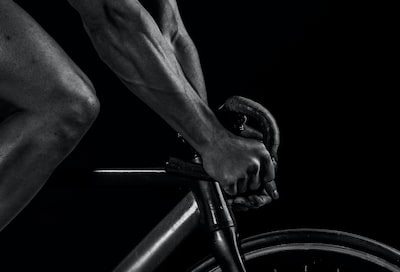Ketone Slow Down
This week, it's reconsidering ketone drinks, diagnosing a heart condition at the supermarket, and your weekly recommendations.
The Rundown
Ketone Slow Down. Ketone drinks are sports supplements that claim to improve athletic performance by offering the purported benefits of the low-carb, high-fat, ketogenic diet in a bottle. But a new study says they don’t work, at least when it comes to increasing recreational cyclists’ racing speed. In fact, the cyclists performed worse after consuming a ketone drink than after a placebo.
First, some background: A ketogenic diet produces ketone bodies, commonly called ketones. Our brain, heart and other organs can use them as fuel and our muscles start relying on fat rather than carbs for energy. Since we store more fat than carbs in our bodies, ketogenic diets should mean that endurance athletes can train and race longer.
These effects however, require weeks or months of being on the diet before the body begins to efficiently use fat as its primary fuel. Ketone drinks are theoretically a quick, easy way to get the performance benefits of going keto.
To test ketone drinks, a team from McMaster University in Canada had 23 trained, adult cyclists who consistently rode more than five hours a week complete two separate 20-minute time trials on stationary bikes. They drank a commercially available ketone supplement before one trial and a beverage with a similar flavor but no ketones before the other.
The riders produced about two percent less power after downing the ketone drink than the placebo and said that the ride felt as tiring after the ketone drink as it did after the placebo. They also reported digestive side-effects after drinking the ketone beverage (which apparently have been known in athletic circles for some time).
It’s not all bad news. While ketone drinks before a race are, as one study author put it, “not likely to help,” they might assist with recovery after multiple, hard workouts or races. They could also help with endurance events like a five-hour long Tour de France stage, as current studies have mostly focused on non-elite athletes in challenges that do not mimic professional cycling.
For now, more research is needed before recommending ketone supplements for limited sporting use.
Shopping Diagnostics. A test for atrial fibrillation (AF) could be coming to a shopping cart near you.
Atrial fibrillation is the most common heart disorder and occurs when the upper chambers of the heart beat irregularly or out of sync with the chambers below. It’s dangerous because it can lead to the formation of blood clots in the heart, which increases the risk of having a stroke. It can be episodic or permanent and many people aren’t aware they have it.
With this in mind, researchers from Liverpool John Moores University in the UK created MyDiagnostick, a cylindrical device that records a single-lead electrocardiogram (ECG) tracing when a participant’s hands make contact with the metal electrodes. While contact is maintained, the device’s internal software analyzes the ECG over a one-minute period.
To test the device and make it unobtrusive, the team put it into the handles of supermarket carts. More than 2000 people agreed to use the modified cart while shopping. They held the handle for at least 60 seconds. If it lit up green, no irregular heartbeat was found and a researcher double-checked the result by manually checking the person’s pulse.
If it lit up red, an irregular heartbeat was detected and an in-store pharmacist checked the person’s pulse manually and using a separate heart monitoring device. Their ECGs were also reviewed by a cardiologist and if it was determined that they had AF, they were given a cardiologist appointment within two weeks.
From those that produced a red light, AF was diagnosed in 59 participants, 39 of these people had not previously been diagnosed with the condition.
While the device had sensitivity levels above 94%, its accuracy needs improvement. It registered a high number of false positives. Only a quarter to a half of those getting a red light for AF actually had it. There were also many false negatives using the device’s current algorithm. The team plans to make adjustments before the second round of testing.
Still, the device holds promise for preventing strokes and saving lives, as long as there is immediate access to a health professional who can explain the findings and refer people for confirmatory tests and any needed medications.
The study was published in the Journal of Personalized Medicine.
Extra Point
Watch
Fearless. In this aptly named 2016 docuseries, a group of Brazilian bull riders take on the American circuit. The six-episode series follows them from Brazil to the Las Vegas championships as they seek fame, fortune and professional titles in the U.S. For some, it will prove to be too much but one rookie phenom emerges as a threat to the top-ranked American favorite. Fearless is streaming on Netflix.
Listen
Redefining Yoga by LYT Yoga. Host Lara Heimann created LYT Yoga, which she refers to as “smart yoga developed by a physical therapist.” Her solo episodes and guests in this podcast discuss topics across the mind/body connection, smarter movement patterns, discipline, and the confidence to pursue your goals.
Read
How to Overcome Gym Intimidation for Lasting Fitness Success. In this short piece for Psychology Today, Justin Kompf, Ph.D. talks about “experiential acceptance” (the idea of feeling okay with discomfort if it gets you something you truly want) and its relationship to exercise.



